|
Genres, Themes, Actors, and Directors:
- Catherine Deneuve Films
- David Bowie Films
- Horror Films
- Lesbianism
- Susan Sarandon Films
- Vampires
Response to Peary’s Review:
Peary argues that this “disappointing, pretentious horror film set in contemporary New York” eventually “becomes downright stupid and repulsive”, noting that Tony Scott’s “direction is stylish in the wrong way” and that “the picture comes across as an exotic commercial or sexy music video”. He points out that in this “vampire chic”, there is “loads of sex, including the much publicized lesbian scene between Deneuve and Sarandon,” but he writes “it’s so tiresome that the whole thing should have been in Polish” (!!!). He ends his review…
(SPOILER ALERT)
… by positing that “the trite, horrible scene in which all of Deneuve’s former lovers rise from their coffins and revolt against her is the worst horror-movie finale since the ghost attack in The Sentinel.”
I’m less disappointed by this highly stylized cult vampire flick than Peary obviously is. While some aspects of the screenplay — i.e., nearly everything taking place in Sarandon’s laboratory — are insufficiently explained, the overall mood is (appropriately) one of sensuous horror amidst grandeur and deception. Deneuve and Bowie are perfectly cast as (nearly) ageless vampires who live for seduction (and classical music), and Sarandon is both sexy and believable as a doctor strangely attracted to Deneuve. The ending works okay for me, though (again) I wish some elements were explained more clearly, and I’m not sure what to make of the (deliberately?) ambiguous coda. Meanwhile, Denny Jaeger and Michel Rubin’s score makes excellent use of music by Ravel, Schubert, and Delibes (I’m a sucker for his “Flower Duet”).
Redeeming Qualities and Moments:
- Catherine Deneuve as Miriam
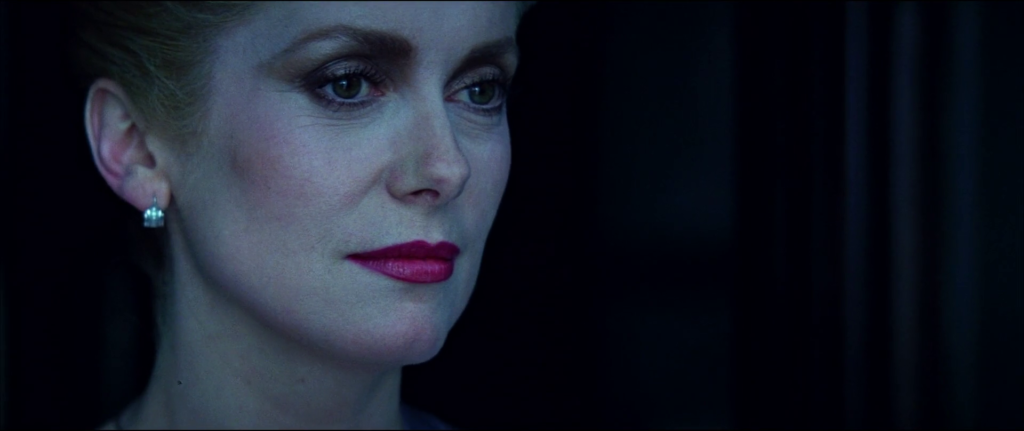
- Susan Sarandon as Sarah
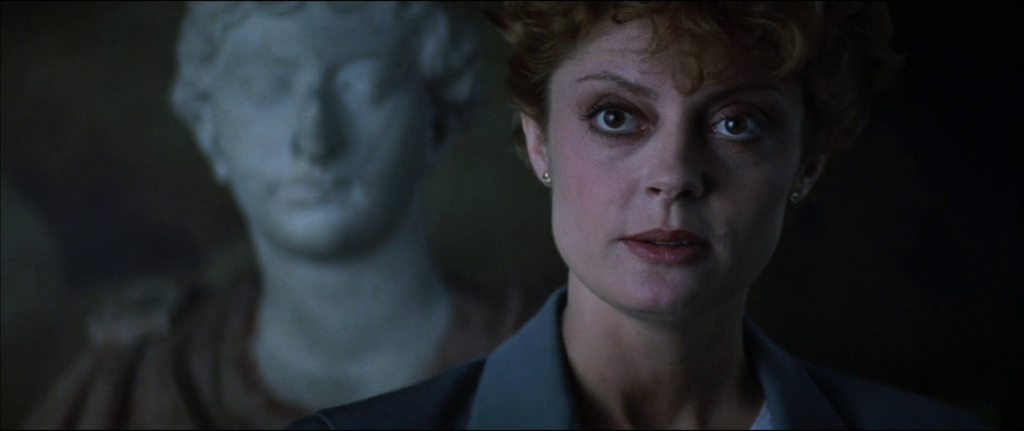
- David Bowie as John
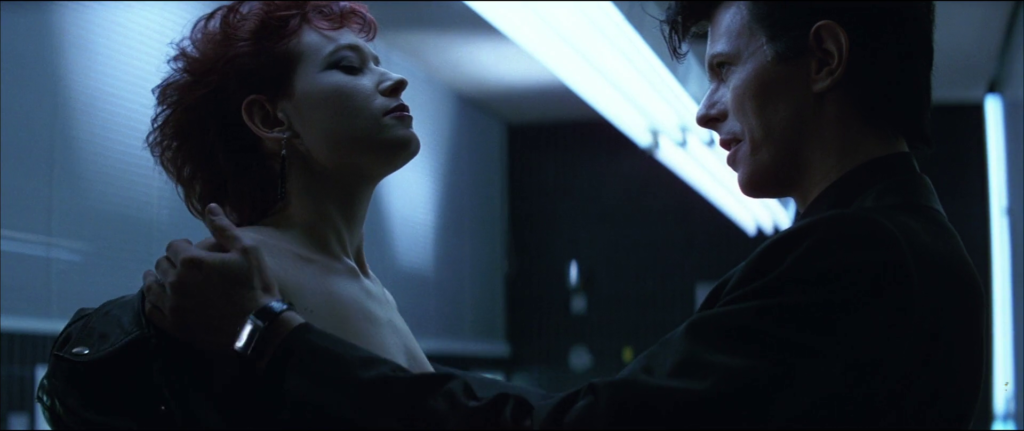
- Highly atmospheric cinematography and sets
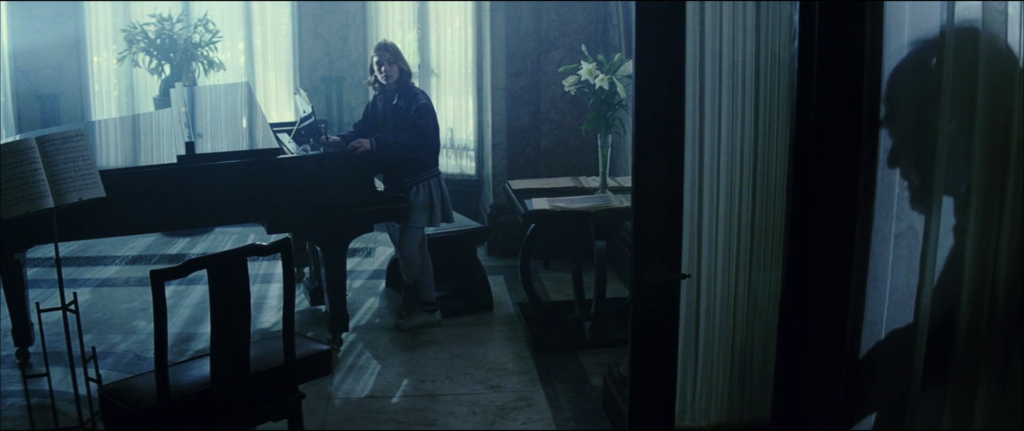
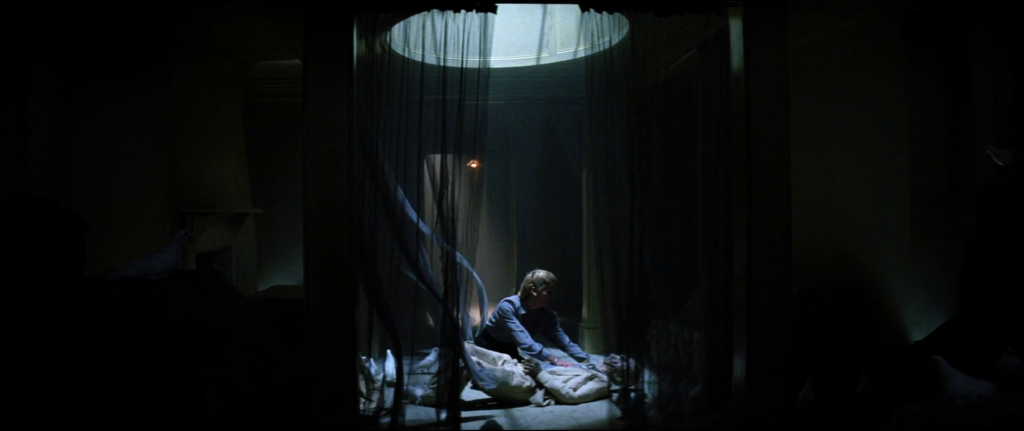
- Good use of NYC locales
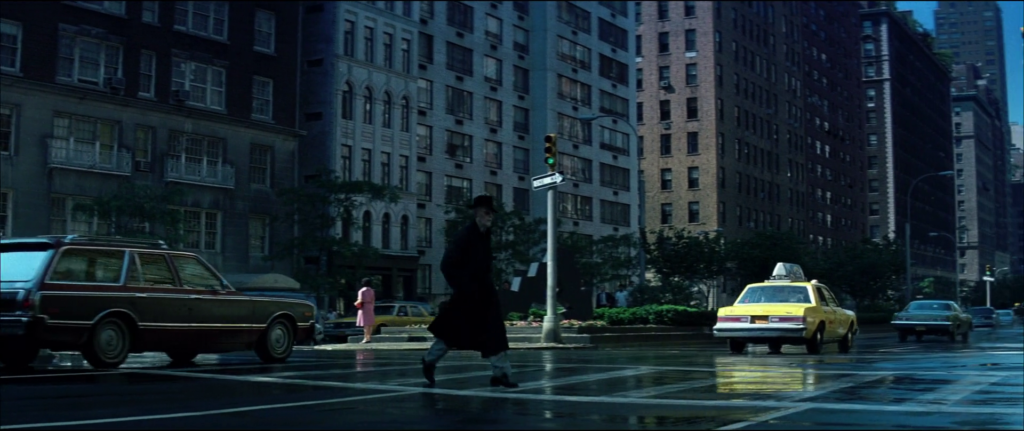
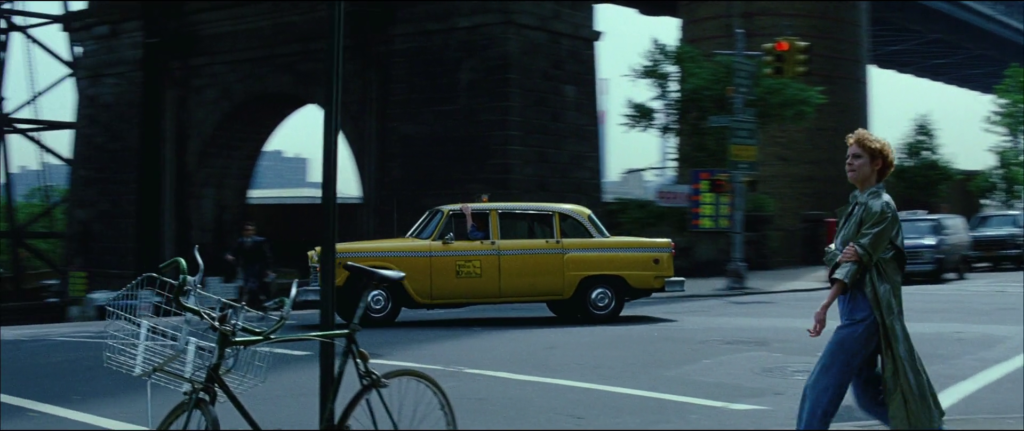
- A fine musical score (borrowing heavily from classical music)
Must See?
No, but it’s recommended if you’re interested.
Links:
|
2 thoughts on “Hunger, The (1983)”
⭐️⭐️⭐️ out of ⭐️⭐️⭐️⭐️
Ultra arty and stylish this plays like a dream. It is a little obscure at times but has aged rather well. No classic or anything but worth a look for horror buffs but not must see for FFs.
Tony Scott’s second theatrically realised film after the rarely scene short film Loving Memory (1970, 52 minutes) which is much more conventional. It’s obvious Scott got involved in making adverts in the interim.
A once-must, as a unique / memorable ’80s reworking of the vampire flick genre. It can work well on repeat viewings and (overall) has aged rather nicely.
In the blu-ray commentary, director Scott talks about how this film was (unfairly, in my mind) maligned by critics and bombed at the box office. However, its gradual, solid place as a cult item strongly suggests that the film was before its time and ahead of its audience.
It’s one of those films I first saw with my buddy Tom. I recall the rainy evening as one which saw us both as bored – so we took a cab uptown, since the film had just opened and wasn’t playing at a downtown cinema. We both loved it (gripped from the arresting opening sequence and throughout) – and it later became a film we watched occasionally during one of our ‘movie nights’ at home.
Scott said the main complaints – from critics – were that it was “artsy, esoteric and self-indulgent”. But, if you ask me… so what?! The material lends itself to all three – but, moreover, I’m not sure I would agree with “self-indulgent” (which, to me, would describe something like Bertolucci’s embarrassing ‘Luna’). What it *is* is highly stylized – and conscious of that; all of which I find appropriate for the storyline.
What’s unique about ‘The Hunger’ is that it views the vampire world as glamorous film noir. ~ which explains the “artsy” and probably “esoteric” and means that you have to suspend some disbelief in order to view the world as the vampires do.
The three main performances are quite striking – and layered, for something which is not primarily an actors’ film.
I had read the book (which, as I recall, fills in details about Deneuve’s past lives). The ending of the screen version – acc. to Sarandon – was an unfortunate demand from the producers (who initially had thoughts of a sequel). I’ll agree that its logic is somewhat confusing – but I managed to make it work for me in a way that’s satisfying enough. I don’t think it undoes everything that precedes it.
The eeriest thing about the film is how – soon after its release – it served as an unintended metaphor for the AIDS epidemic, which hit NYC within the year or the next.